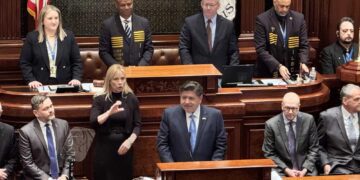There are numerous myths concerning educational choice programs. But in order for parents and students to make well-informed education decisions, these myths must be debunked. Below is a fifth myth and reality on how education choice works taken from a report by the Institute for Justice. (You can read about other myths I have written about here, here, here, and here.)
Myth: Because they allow parents to enroll their children in religious schools, educational choice programs violate the principle of separation of church and state and are thus unconstitutional.
Reality: The U.S. Supreme Court and numerous state courts have held that religiously neutral educational choice programs that give parents a genuine choice as to where to send their children to school pass constitutional muster.
Claims of educational choice being unconstitutional have been brought before the U.S. Supreme Court but have not held up. Under the Establishment Clause within the First Amendment to the U.S. Constitution, an educational choice program is considered constitutional if it includes religious neutrality and private choice.
More HERE







